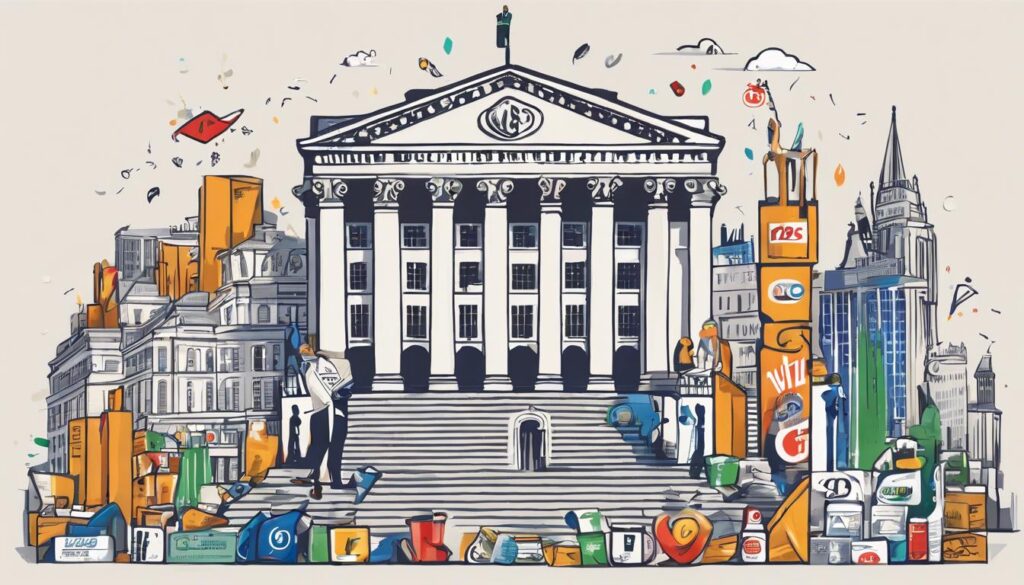The UK’s financial landscape sees major companies like Unilever and DFS adapting to economic shifts and consumer caution, with job cuts and revised sales forecasts amid ongoing market volatility.
The UK’s financial landscape is grappling with various challenges as companies navigate through a period marked by economic shifts and consumer caution. Among the notable developments, Unilever announced a significant restructuring that includes the divestment of its ice cream division and the cutting of 7500 jobs. This move propelled the company to lead the risers on the FTSE 100 index, which closed up 0.2%, reaching 7,738.30. The restructuring has drawn considerable attention in the business world, with other companies like Wickes, Trustpilot, and Close Brothers also experiencing notable fluctuations amid the current market volatility.
The Bank of England is keeping a close eye on the UK inflation figures, anticipated to decelerate to 3.5%. This comes as Japan moves away from its negative interest rate policy, a significant policy shift since 2007, underlining changing global economic strategies.
In the retail sector, DFS Furniture reported a stark decline in demand for high-cost household goods, attributing this downturn to the ongoing cost of living crisis. The company reduced its sales and profits forecasts, projecting revenues to fall by up to £65 million from previous estimates, with a £10 million dip in expected profits. The firm cited a 16% decrease in order volumes for January and February, comparing year-on-year figures, and expressed concerns over potential disruptions in shipments through the Red Sea.
Both DFS and Wickes pointed out the challenging environment for selling larger items, with Wickes managing to secure pre-tax profits above expectations despite the adverse conditions. Tim Stacey, DFS’s chief executive, emphasized the impact of the macroeconomic situation on consumer confidence and demand for big-ticket items like furniture.
These developments reflect the broader trends affecting the UK’s economic atmosphere, where companies are strategizing to navigate through periods of uncertainty and altered consumer behavior, influenced by factors like the cost of living crisis, geopolitical events, and the overall economic outlook.

















